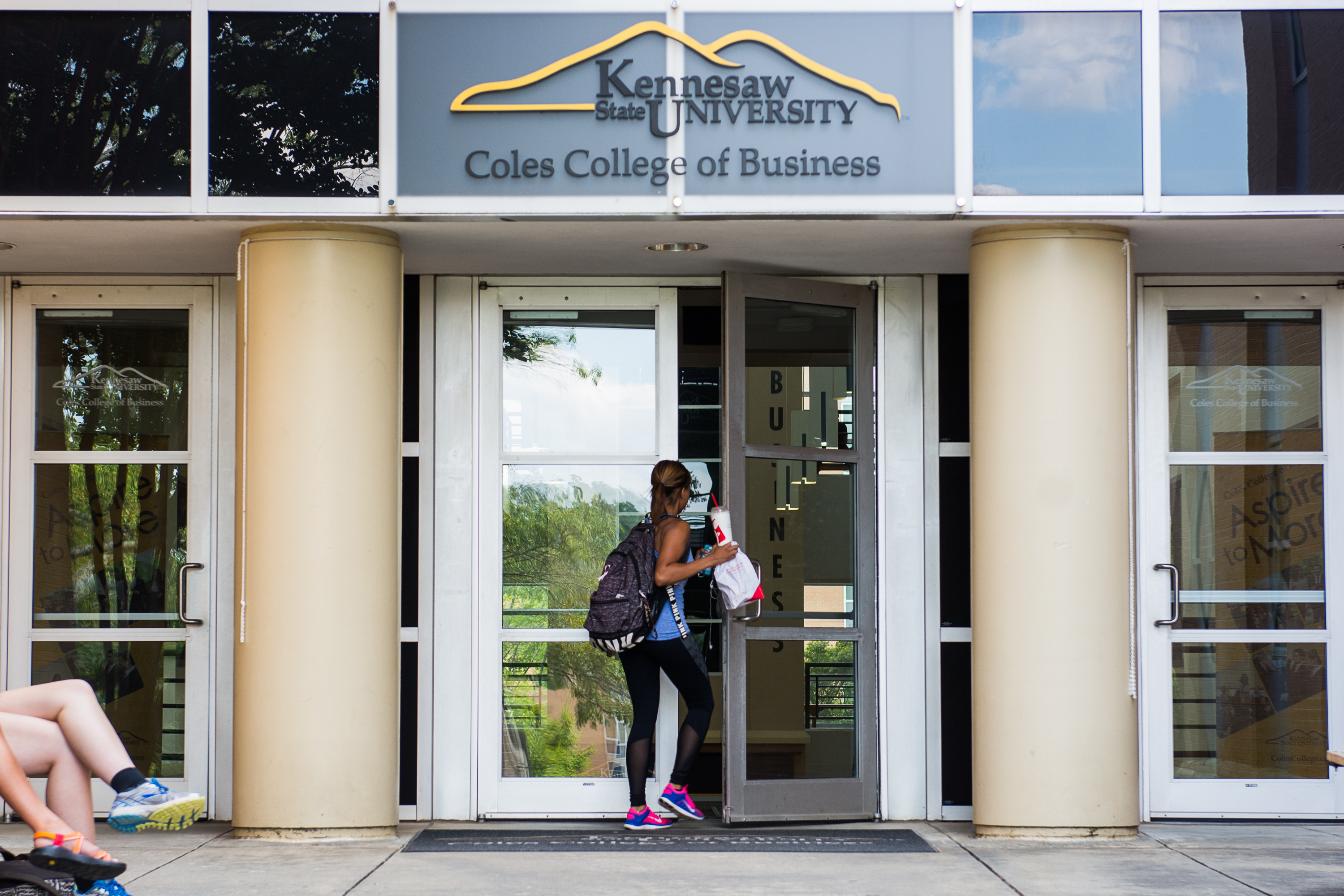Within the next few years, most of us on campus today will prepare to enter the workforce.
Just like the generation before us, we are expected to use our education to move the world in a more stable direction toward peace, equality and sustainability. However, I believe many companies are pushing us back because they seem to be overly concerned with turning a profit.
I feel that many corporations value their profits above ethical practices. Because of this, I believe college students have a responsibility to research more than just the salary and benefits of a potential job — we should research a company’s business practices to see if they align with our own values.
The Stanford Encyclopedia of Philosophy defines business ethics as “the applied ethics discipline that addresses the moral features of commercial activity.” My advice is to strive to make sure the business you create, or the one you work for, seeks to make the world around us a better place.
I believe business majors at Kennesaw State University have an opportunity to support the companies that are actively working to make the world a better place. They can promote environmental sustainability and human rights by simply getting an internship.
“Students are expected to find their own internships,” said Kathleen Hallmark, career and internship adviser for Kennesaw State University’s Coles College of Business.
When I asked Hallmark which companies she considered ethical, she said that many have fallen to the wayside. She also explained that an important aspect of an ethical company is whether it places more value on employee benefits than profit.
“If these workers weren’t in place, you wouldn’t have a company,” she said.
There are some laws and agreements between nations that can encourage companies to partake in unethical practices.
“Various international trade agreements that large corporations are able to strongly lobby favorable conditions in, are often designed in part to make resources (including work forces) cheaper,” wrote Anup Shah on globalissues.org. These types of international trade laws allow large corporations to take advantage of cheap labor overseas, where workers can make the products for poverty wages.
Companies who want to increase their profits may choose to manufacture their products in places like Pakistan, where the minimum wage in U.S. dollars is about 4 cents an hour, according to Pakistan’s Ministry of Finance.
According to CNN, over 97 percent of clothing we buy here in the U.S. is made outside the country. You can find a list of several companies that use overseas labor here.
Unfortunately, similar breaches of ethics are surprisingly common.
Some companies use animal testing, where potentially dangerous products are applied to animals in laboratories. Not only is animal testing cruel to the animals, but it does not always produce the most accurate results.
“Many [products] don’t pass the animal tests because of species-specific results,” The Huffington Post said in an article, “yet many of these agents would likely have worked spectacularly and been safe in humans.”
Find a full list of companies that test on animals here.
Aside from animal testing and using cheap labor, many factories contribute to pollution of the environment through oil spills, carbon emissions and chemical runoff. Despite the horrible environmental and health impacts of these byproducts, many corporations turn a blind eye to in order to increase profit margins.
Recently an oil spill has plagued the Great Australian Bight marine park. According to The Guardian, thousands of personnel were sent to attempt to contain the disaster. Pollution, in the end, puts a burden on society’s shoulders. It’s costly and detrimental.
You can find a few of the worst polluters here.
Pollution, animal testing and the use of cheap labor are just a small number of ways businesses cause damage while attempting to increase their profits.
Some businesses are heavily criticized for paying their employees the bare minimum, denying them health benefits while increasing CEO salaries and discriminating against people of color, LGBT people and women.
Don’t be dismayed. There are some companies that choose to do the best they can to respect the rights of their workers, animals, the environment and the general population.
These are the companies I encourage you to consider when looking for internships or jobs after college. Investigate a company’s ethical values and choose to work with corporations that care.



